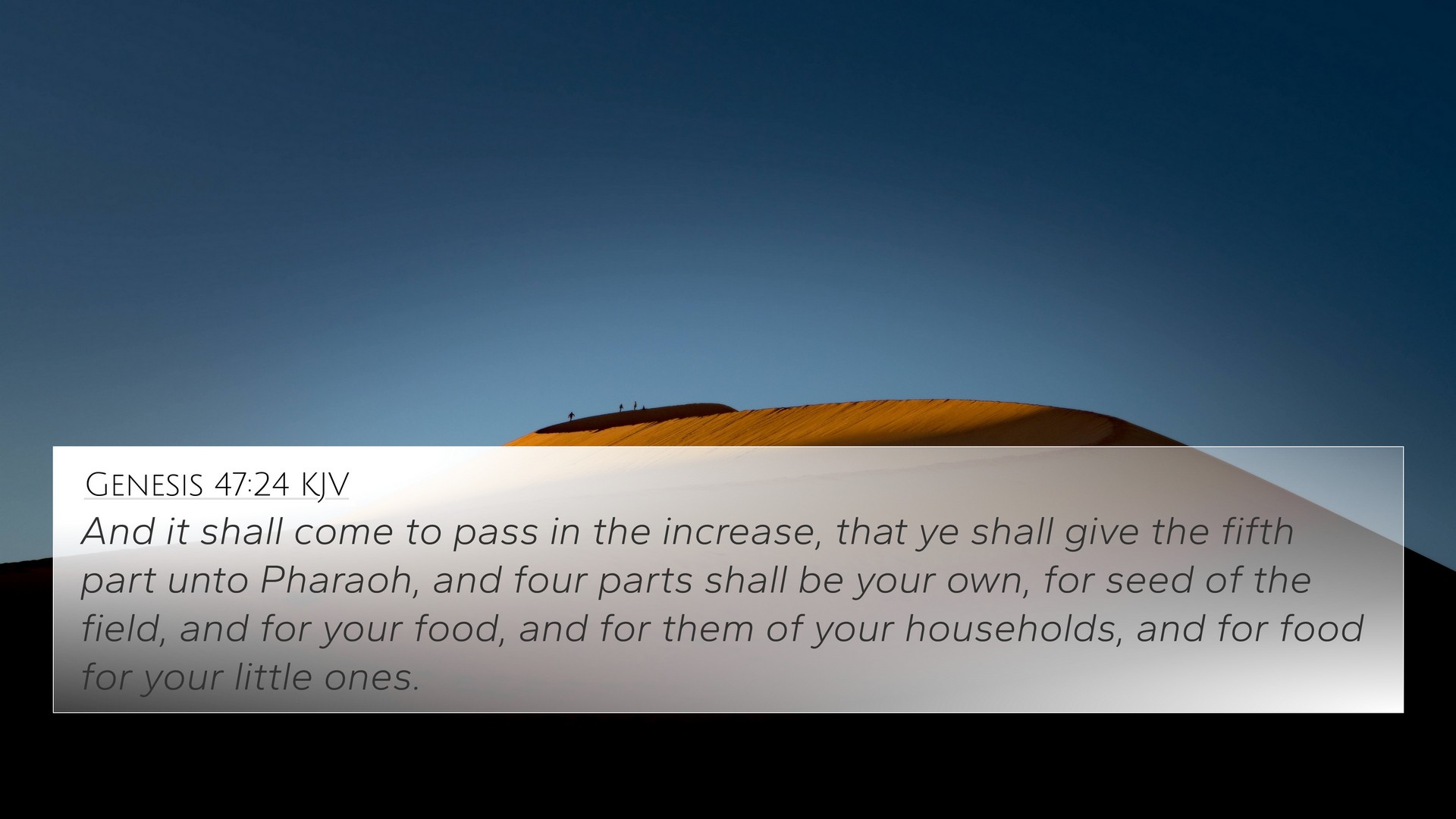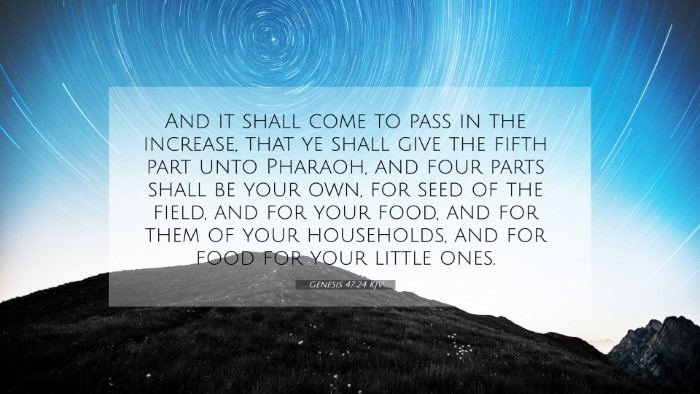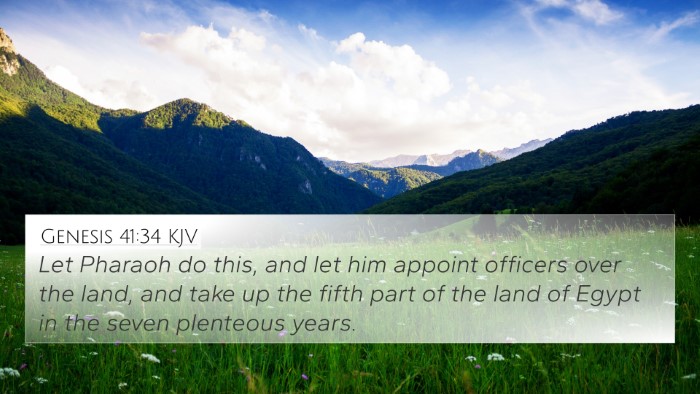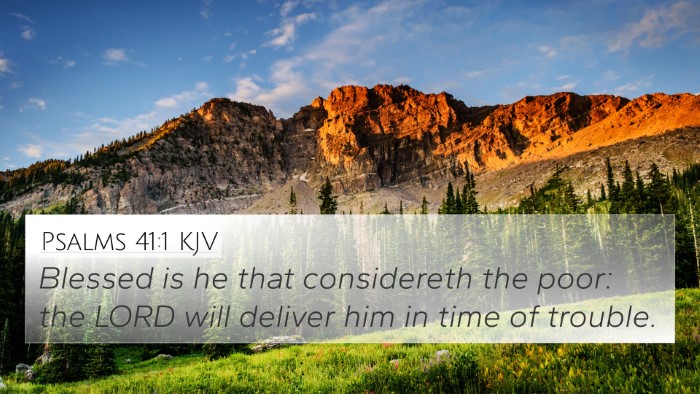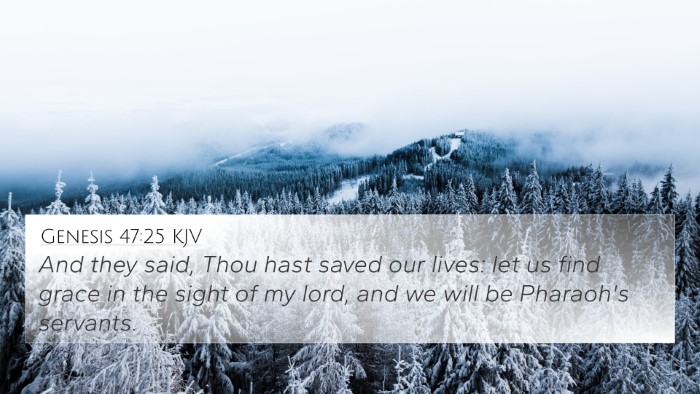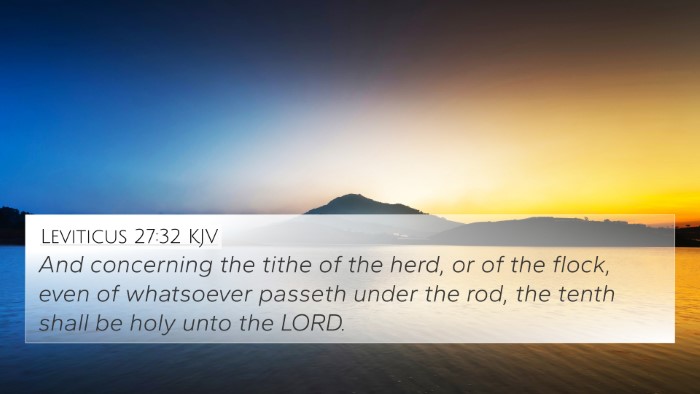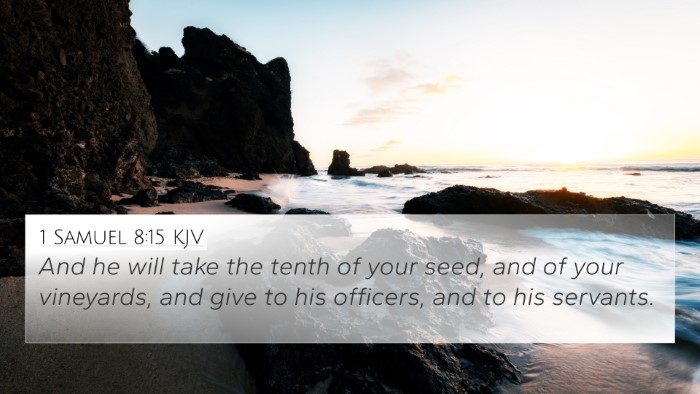Understanding Genesis 47:24
Genesis 47:24 states, “And it shall come to pass in the increase, that you shall give the fifth part unto Pharaoh, and four parts shall be your own, for seed of the field, and for your food, and for them of your households, and for food for your little ones.”
This verse occurs during a time of famine in Egypt, wherein Joseph, having been appointed by Pharaoh to manage the grain supply, establishes a system for the people to survive while also sustaining the Egyptian economy.
Commentary Insights
Matthew Henry's Commentary
According to Matthew Henry, this verse illustrates the wisdom of Joseph in governance. The arrangement to provide for both Pharaoh and the people ensures that resources are effectively managed. Joseph's scheme prevents utter destitution, allowing the people to sustain themselves while reinforcing Pharaoh's authority.
Albert Barnes' Notes
Albert Barnes emphasizes the significance of this taxation imposition (20% of crops) as a necessary measure for the survival of the Egyptian populace during famine. He notes how this policy not only protects the nation’s resources but also illustrates God's providential care amid suffering. It reflects a balance between individual sustenance and loyalty to Pharaoh's rule.
Adam Clarke's Commentary
Adam Clarke discusses the practicality of the arrangement, mentioning that such a system of taxation is both fair and sustainable. He highlights that Joseph’s wisdom in advising the people during the famine demonstrates the divine guidance bestowed upon him. Clarke notes this event's importance in conveying God's plans through the actions of man.
Bible Verse Cross-References
- Genesis 41:30-31: Discusses the coming famine and Joseph’s interpretation of Pharaoh's dreams.
- Genesis 45:5: Joseph reveals his identity to his brothers and explains God’s purpose in sending him to Egypt.
- Exodus 1:11: Highlights the continued oppression of the Israelites, emphasizing the long-term effects of Joseph's policies.
- Matthew 20:25-26: Jesus discusses servant leadership, paralleling how Joseph served Pharaoh while caring for the people.
- Acts 7:11-13: Stephen recounts the famine and Joseph's role, showing the continuity of God's plan.
- 1 Corinthians 4:2: Discusses the responsibility of stewards, reflective of Joseph’s management of resources.
- Luke 12:42: Link to the faithful steward, illustrating Joseph’s wise governance during Egypt’s crisis.
Thematic Connections
This verse embodies themes of stewardship, providential care, and the necessity of wise governance. Joseph’s actions candidly reflect biblical principles regarding resource management, which relates to various passages across the Scriptures. The cross-references illustrate how wisdom and foresight in leadership can have long-lasting implications for communities.
Practical Application
The verse encourages believers to consider modern applications of wise stewardship in their own lives. In times of crisis, the management of resources is crucial, paralleling Joseph's experience with contemporary financial and communal responsibility. This brings a deeper understanding of what it means to care for one's family and community, mirroring God's provision.
Conclusion
Genesis 47:24 serves as a reminder of the importance of leadership during trying times and emphasizes God's providential care through human agency. Cross-referencing this verse with others enhances understanding and provides a richer perspective on these themes. Utilizing tools for Bible cross-referencing can further assist in examining related verses, revealing a vast network of connections within Scripture.
